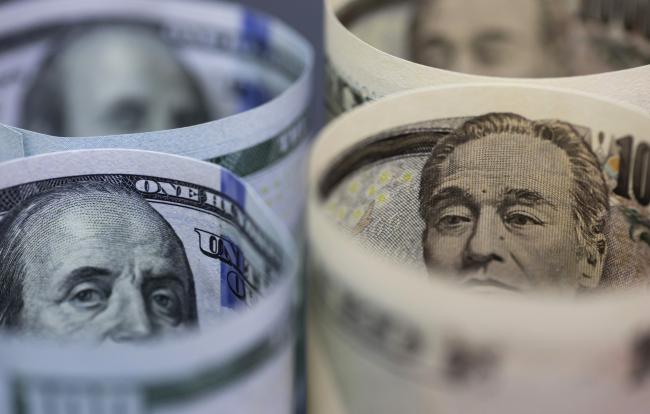(Bloomberg) -- Japan’s currency traders had a present waiting for them when they got back to their desks on Friday morning: the yen’s biggest new-year jump in a decade.
The currency surged 2.4 percent against the dollar from Dec. 28 to the New York close on Thursday, the biggest advance during any Japanese new-year-holiday break since 2008, according to data compiled by Bloomberg.
The yen jumped at least 2 percent against all except one of its Group-of-10 peers during the break, and surged as high as 104.87 per dollar on Thursday, the strongest since March 2018. That compares with last year’s low of 114.55 set in October, and the forecast of 109.41 made by the nation’s large manufacturers in the quarterly Tankan survey just three weeks ago.
“The yen can move big when it moves during the new year given Japanese market participants are absent for a relatively long holiday,’’ said Kiyoshi Ishigane, chief strategist at Mitsubishi UFJ Kokusai Asset Management Co. in Tokyo. “While I was expecting some sort of volatile move, the jump to 104 caught me by surprise.’’
The currency’s surge has a number of possible implications for Japan’s economy and the central bank. It is likely to hurt exporter profits, slow economic growth and make it harder for the government to go ahead with its plan to raise the sales tax in October.
“The surge in the yen is likely to hit Japanese corporate earnings and equities,” said Kengo Suzuki, chief foreign-exchange strategist at Mizuho Securities Co. in Tokyo. “Importers may buy dollars, but given very bad market sentiment, a rebound in the dollar-yen would just prompt selling from exporters.”
The strength in the yen may spur Bank of Japan board members to suggest they will boost monetary easing, Mizuho’s Suzuki said. The BOJ next meets on Jan. 22-23.
A large proportion of the yen’s gains took place in a few brief minutes of frenzied trade early on Thursday. The currency rocketed in a “flash crash" that seemed to have been triggered by Japanese retail investors selling the Australian dollar and Turkish lira.
The Ministry of Finance is looking to see if moves of the yen are speculative, Masatsugu Asakawa, vice minister for international affairs at the ministry, told reporters in Tokyo. The currency weakened 0.2 percent on Friday to 107.85 per dollar.
Japan’s stocks tumbled when they reopened on Friday following the new-year break. The Topix index slid as much as 3.2 percent after slumping 10 percent in December.
